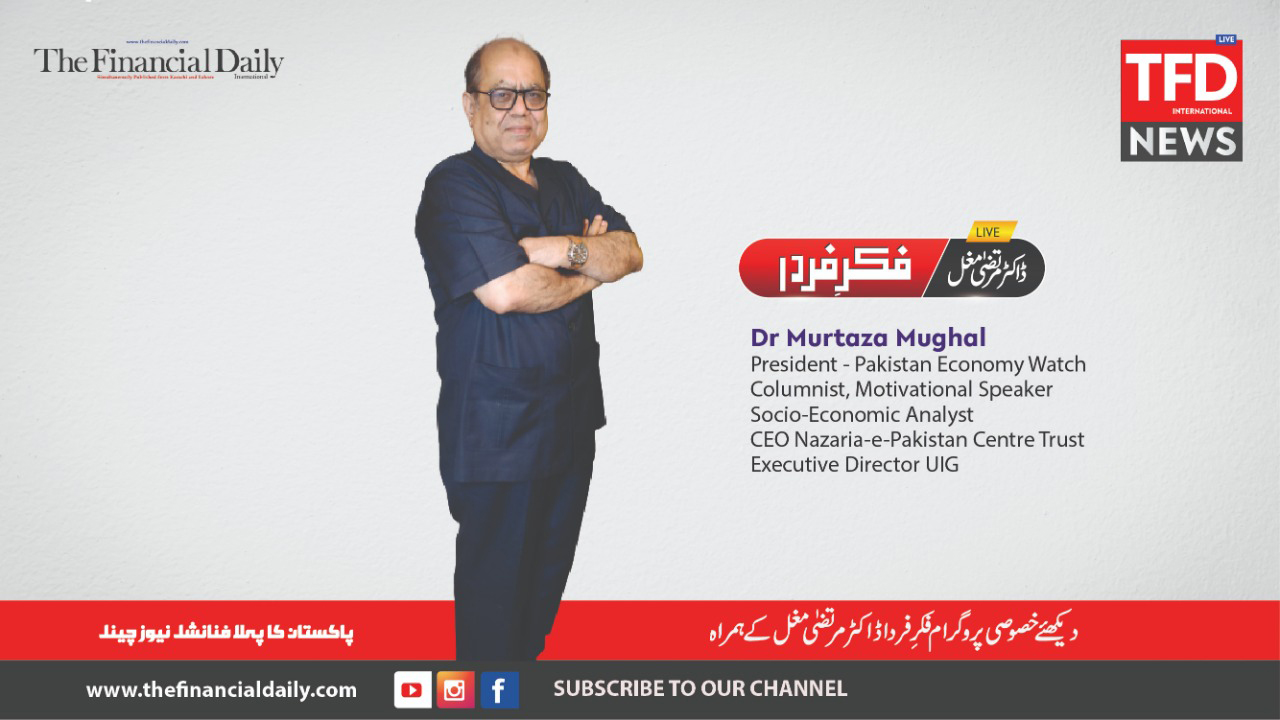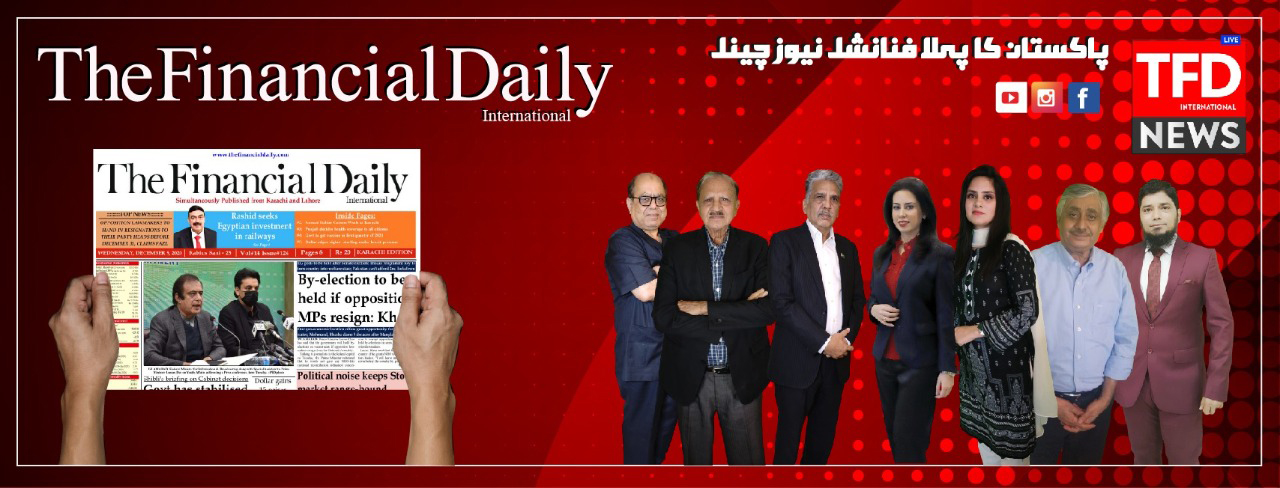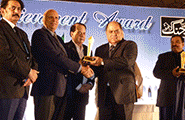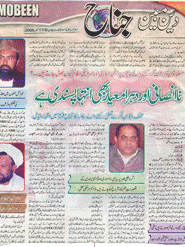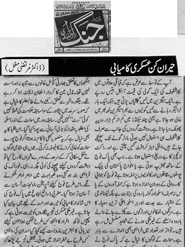Insurance is essential to build a walfare society
The Insurance Association of Pakistan describes that “insurance is a risk transfer mechanism.. It’s a method of shifting the responsibility for losses…… spreading it over a large number of people or firms”.
Though there is a long standing debate in our society whether insurance conforms to Islamic notions or not, Islamic research scholars familiar with dynamics of prevailing world economic order say there is nothing unislamic as far as concept of insurance is concerned. Problem lies with methodology. Emerging concept of Takkaful is the Islamic version of insurance. Both ways insurance or risk coverage has come to be recognized as a vital instrument ensuring stability at economic and social levels.
It is said without insurance cover all industrial, commercial and social activities of the world will come to a grinding halt.
In today’s world its importance and relevance is undeniable. It is emerging and taking roots at different levels in Pakistan. Like that in banking, a system of Islamic insurance known as Takkaful is fast evolving.
We have a chat with seasoned underwriter Dr Murtaza Mughal who is currently heading United International Group. Dr Mughal has been working with national and multinational groups having rich experience and exposure in insurance business.
Q: Can you tell us about the insurance industry, its growth patterns and contribution to the national GDP? Its importance and relevance in the contemporary crises?
Dr Mughal: It is still grossly untapped segment of the economy. There is a need to organize insurance business on modern lines. This profession has, hitherto, been handled mostly by nonprofessionals who have greatly damaged image and credibility. With upcoming efforts on interest-free banking, Islamic concept of insurance Takaful brings unprecedented opportunities in its wake. However, there is a need to continuously work in the right direction.
Despite tremendous potential, the insurance business is yet to attain the status of an industry in Pakistan. The Government seems to be slow and slackness at the policy making level is hindering realization of inherent potential in this sector. Its importance and relevance has increased manifold in face grim security scenario, social instability and unrest let alone business losses and vulnerability.
Unlike other industries like banking, leasing, IT, insurance has received lukewarm response from the official quarters. There is wide gap of understanding as well as communication between policymakers and insurance companies. Only a viable and vibrant insurance sector can spur confidence among the entrepreneurs to come forward and unleash business activities.
I must say that G.D.P of a country is directly proportional to the development of its insurance industry. Presently this sector is witnessing a fall, which is very alarming. All sectors of economy except agriculture are showing negative growth, which can be effectively handled with the support of insurance companies.
It is the responsibility of the government to cover every citizen against the risks of accidental death, permanent disability or loss of limbs. Every citizen has the right to dependable health facilities, security and quality education. This can only be attained through insurance instruments. Thus, the government ought to take these measures and make it mandatory for all small and big organizations alike.
Q: What’s good thing about insurance industry? What are major challenges?
Dr Mughal: It is obvious. Perhaps, this is the most vital safety and collective risk sharing mechanism ever evolved by the human beings. Any concept or effort to develop a welfare society or state is almost impossible without insurance. No doubt, Islam is the first world region that propounded concept of public welfare. In a way, it is an Islamic concept if its working methodology is kept riba or interest-free. Takkaful is a successful initiative towards this end.
Over the years, the insurance companies have made successful strides and succeeded in altering many wrong perceptions. Now people are not reluctant or averse to insurance; one can easily talk to common folk like shopkeepers, merchants, and small business owners. To my mind, the biggest breakthrough on the part of insurance companies is to win over support of religious leaders.
Q: How would you compare your industry with other industries?
Dr Mughal: At the outset, it is difficult to draw parallels with other industries. I have already expressed this sector is not being treated as industry in our country. Industry can prosper only under the umbrella of favorable policies and enabling environment. The government has put in place regulatory authorities, but no concrete effort has been made to facilitate this sector.
Q: To begin with, what you expect the government to do?
Dr Mughal: I am sorry to say that the government prefers to remain as a silent spectator. It can play a role and make big difference. At least there must be a specialized institution for capacity building so as to organize this sector on modern and professional lines.
Q: How is your industry coping with the current recession; when is rebound expected?
Dr Mughal: The global crunch has taken toll on this crucial sector as well; decreasing business volume by roughly 40 percent. Fortunately, the bail out packages in developed countries are paying dividends. If positive sentiment takes root in developed economies and reinsurance gains momentum, indigenous insurance companies will rebound.
Q: What about your company? What sets you apart from others?
Dr Mughal: Main Shahid, who started career as a representative, owns United Insurance Company (UIC). It is now among top rated national insurance companies. It is, of course, a remarkable achievement on the part of a person who rose from gross root level. He knows all the ins and outs of the profession and organized the company to offer cutting edge products at very competitive cost.
Currently UIC has operations in approximately 32 cities and jurisdictions. It is serving commercial, institutional and agricultural as well as individual customers through an extensive national network.
UIC has established itself in a predominant position as a reliable insurer with strong financial strength, which is evident from the fact that gross premium of the company has increased manifold. The state regulator – Security & Exchange Commission of Pakistan has ranked UIC as fourth largest insurance company in terms of paid up capital.
We operate in a different way. We are not in the market just to make money. We are committed to playing our part in welfare activities as well. It is matter of great satisfaction and pride that we are among very few national companies which have highly qualified and seasoned professionals in underwriting and claims management. That is why State Bank of Pakistan has approved the company for crop, livestock and agriculture insurance. We are among the first to have reinsurance treaties for these sectors.
Q: Are you satisfied with the performance of your company?
Dr Mughal: Yes. UIC has recorded commendable performance in business volume and turnover. It is among very few national companies, which have impressive paid up capital. We take pride in performing so well and continuously adding to the company’s financial strength and reputation. Strong leadership and teamwork has helped achieve these impressive results. It is also reflection of customer’s confidence in a fast growing national company like UIC. We are committed to serving our clients at par with international standards.
Q: How do you spot business opportunities? Are you proactive? Or reactive?
Dr Mughal: Well, some times pro active and at times reactive. Uncertainty and instability in the market had made many things fluid. In this emerging market, a lot of opportunities abound. All that needed is teamwork and professionalism.
We focus on out-reaching activities and best after sales service. This creates opportunities for cross selling. When you earn a good name at one place, that invariably creates referrals.
Q: What are the levels of your ‘energy’ and ‘focus’ during the highs and lows of business?
Dr Mughal: al hamdollilah, I am strong believer in Allah who ordained that reward matches struggle. This is source of my energy. Highs and lows are part of life and business. There are some variables that we can handle, and some are constants, which are beyond human control.
Q: What’s your legacy? How would you want to be remembered in this industry?
Dr Mughal: Mourning or manipulation is not my approach. Merit is my sole criterion. I like to be remembered as a professional who is a trend setter in the corporate world upholding the notion that business should be humane to serve the humanity.
Q: What’s word advice you can give to new entrants?
Dr Mughal: Never join this industry for the sake of income. If you have attitude to convince, act and follow; only then step in.

